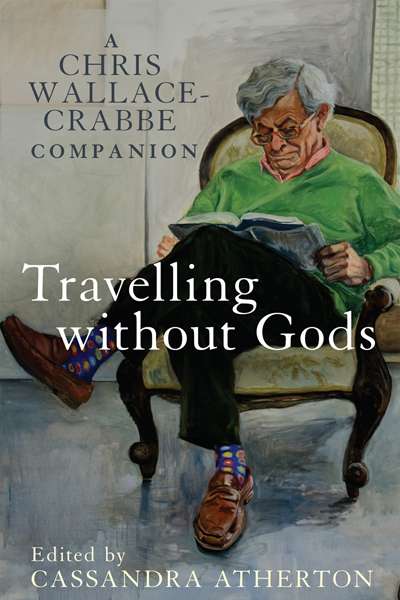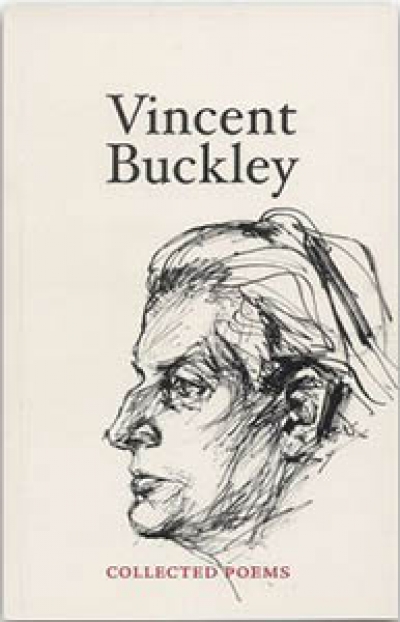Chris WallaceCrabbe
Travelling Without Gods edited by Cassandra Atherton & My Feet Are Hungry by Chris Wallace-Crabbe
An Anthology Of Modern Irish Poetry edited by Wes Davis
Vincent Buckley edited by Chris Wallace-Crabbe & Journey Without Arrival by John McLaren
Telling a Hawk from a Handsaw by Chris Wallace-Crabbe
Stunned Mullets and Two-pot Screamers: A dictionary of Australian colloquialisms, Fifth Edition by G.A. Wilkes
Oxford traveller
Dear Editor,
In his ‘Diary’ in the March 2007 issue of ABR, Chris Wallace-Crabbe tells us that he’s been reading Ulysses and War and Peace (‘alternately’) as he travels to Oxford. Then, out of the blue, he adds: ‘Meanwhile, Ken Gelder has written the most appalling attack on literature, and especially on the concept of style, in the latest Overland. His anti-aesthetic position is, of course, indistinguishable from that of John Howard and the right-wing philistines. It has been so for a long time: the right and the far-left in materialist cahoots.’ My Overland essay was a criticism of Tory literary tastes and positions in Australia, including the disdain some writers have for readerships. Only a blinkered literary snob could construe this as an ‘attack on literature’. I found Wallace-Crabbe’s insulting remarks utterly perplexing. For example, what does he mean by ‘the concept of style’? Whose concept? I have no idea. What does he mean by ‘anti-aesthetic’? The term used to be used by postmodernists, but he also attributes it to John Howard – a point which seems to fly in the face of reality.
... (read more)Dennis Altman
In any given year we will read but a tiny handful of potential ‘best books’, so this is no more than a personal selection. Here are two novels that stand out: Stephen Eldred-Grigg’s Shanghai Boy (Vintage) and Hari Kunzru’s Tranmission (Penguin). Both speak of the confusion of identity and emotions caused by rapid displacement across the world. The first is the account of a middle-aged New Zealand teacher who falls disastrously in love while teaching in Shanghai. Transmission takes a naïve young Indian computer programmer to the United States, with remarkable consequences. From a number of political books, let me select two, both from my own publisher, Scribe, which offers, I regret, no kickbacks. One is George Megalogenis’s The Longest Decade; the other, James Carroll’s House of War. Together they provide a depressing but challenging backdrop to understanding the current impasse of the Bush–Howard administrations in Iraq.
... (read more)The Universe Looks Down by Chris Wallace-Crabbe & Read It Again by Chris Wallace-Crabbe
Art is a strange posing of discoveries, a display of what was no more possible. For it is the task of the creative artist to come up with ideas which are ours, but which we haven’t thought yet. In some cases, it is also the artist’s role to slice Australia open and show it bizarrely different, quite new in its antiquity.
Half a century ago, Sidney Nolan did just this with his desert paintings and those of drought animal carcasses. I recall seeing some of these at the Peter Bray Gallery in 1953 and being bewildered by their aridity: a cruel dryness which made the familiar Ned Kelly paintings seem quite pastoral. Nor could I get a grip on his Durack Range, which the NGV had bought three years earlier. Its lack of human signs affronted my responses.
The furthest our littoral imaginations had gone toward what used to be called the Dead Heart was then to be found in Russell Drysdale’s inland New South Wales, Hans Heysen’s Flinders Ranges, and Albert Namatjira’s delicately picturesque MacDonnells. Nolan’s own vision was vastly different: different and vast. It offered new meanings and posed big new questions.
... (read more)





